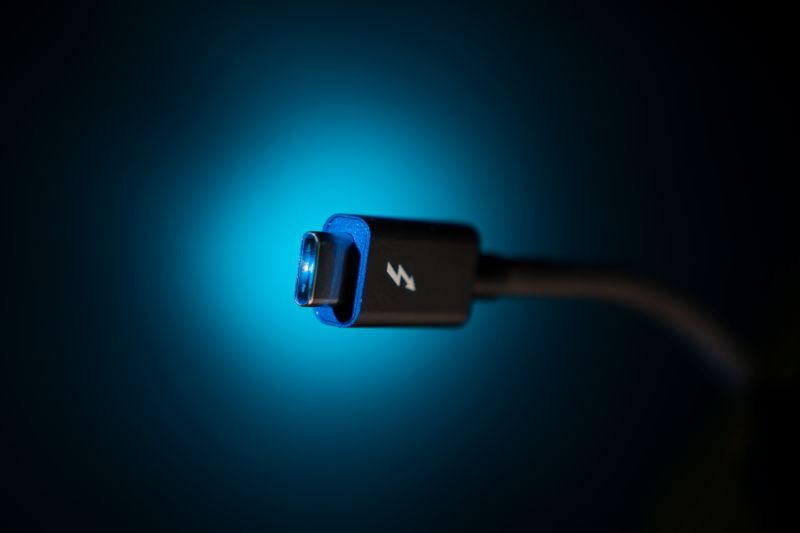Thunderbolt 3 becomes USB4, as Intel’s interconnect goes royalty-free

Enlarge / A very dramatic-looking Thunderbolt 3 cable.
Fulfilling its 2017 promise to make Thunderbolt 3 royalty-free, Intel has given the specification for its high-speed interconnect to the USB Implementers Forum (USB-IF), the industry group that develops the USB specification. The USB-IF has taken the spec and will use it to form the basis of USB4, the next iteration of USB following USB 3.2.
Thunderbolt 3 not only doubles the bandwidth of USB 3.2 Gen 2i-2, going from 20Gb/s to 40Gb/s, it also enables the use of multiple data and display protocols simultaneously. We would expect the USB4 specification to be essentially a superset of the Thunderbolt 3 and USB 3.2 specifications, thus incorporating both the traditional USB family of protocols (up to and including the USB 3.2 Gen 2i-2) and the Thunderbolt 3 protocol in a single document. Down the line, this should translate into USB4 controllers that support the whole range of speeds.
Intel has previously announced that its Ice Lake platform, due to ship later this year, will integrate both Thunderbolt 3 and USB 3.1 Gen 2 (aka USB 3.2 Gen 2) controllers. Currently, offering Thunderbolt 3 requires the use of an additional chip, one of Intel's Alpine Ridge Thunderbolt 3 controllers. Integration into the platform means that system-builders no longer need to choose whether or not to include the extra chip; the capability will be built in, and as such, we'd expect to see it become nearly universal.
Read 1 remaining paragraphs | Comments